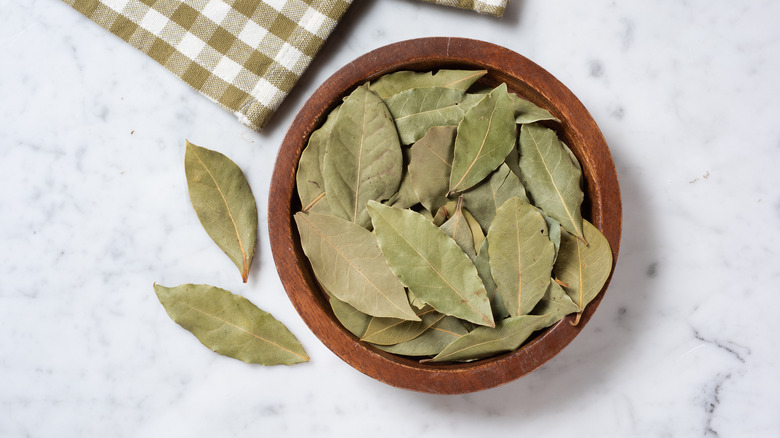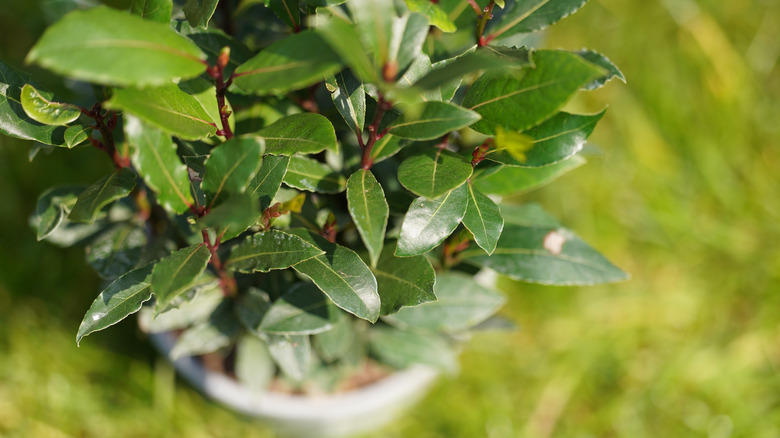Is It Dangerous To Eat Bay Leaves?
When I was a kid, my mom would tell my sister and me to be careful to pick out any bay leaves from whatever pot of minestrone or tomato sauce she was ladling out. "They'll stick to the sides of your stomach," she said. "They might form a tumor." Others may have heard other such anti-bay leaf propaganda from their parents, who might have learned it from theirs — generations believing that bay leaves are toxic, cancerous, and definitely something you shouldn't put in your mouth, let alone your stomach.
God bless the elders, but with the benefit of hindsight we can say with certainty: That was all nonsense. Thick and green with a mild, herby aroma, bay leaves don't exactly taste like much if you bite into one. They're a bit on the chewy side so choking could, theoretically, be a hazard. But that's about the extent of the harm this particular herb presents to you. Otherwise, it's totally nontoxic.
Most bay leaves on the market today come from the bay laurel tree, which is native to the Mediterranean. One reason for the leaves' bad reputation may have something to do with the similar-sounding (and extremely beautiful) mountain laurel, a North American native that is poisonous as all get-out — leaves, roots, fruits, the whole thing. Despite its name, the mountain laurel belongs to an entirely different family of plants than most other laurels — including the harmless bay laurel.
What are bay leaves, anyway?
Common in Mediterranean cuisine, bay leaves impart a subtle flavor reminiscent of oregano, thyme, menthol, and eucalyptus. You'll often come across them steeping in brines or stocks, added as an aromatic (i.e., with onion, carrots, garlic, and the like), or burbling away in a stew or braise, like this delicious braised oxtail dish. Bay leaves can be purchased fresh or dried. Thanks to one old guy vending at a farmers market I used to go to, I can attest that fresh-off-the-tree bay leaves smell spectacular and are more herbally complex than their dried counterparts. However, because bay leaves are nonvolatile — meaning they don't lose a lot of flavor compounds as they dry — the dried ones are still a totally respectable product.
Want an even more intense bay leaf experience? Seek out the California bay leaf, which comes from an entirely different (also nontoxic) tree: the California bay laurel, native to the West Coast. These are so intense that they're sometimes described as medicinal. While they can be used anywhere you'd use a regular bay leaf, they won't impart exactly the same flavor. So, start slow and experiment as you go.
Fish them out before serving dinner, or don't — your dinner guests could also do the honors. And if one happens to slip past into the mouth of some unsuspecting eater? Bay leaves don't really soften, even after a long time on the stove, so your guest will probably notice. But that's about as much drama as you can expect.

